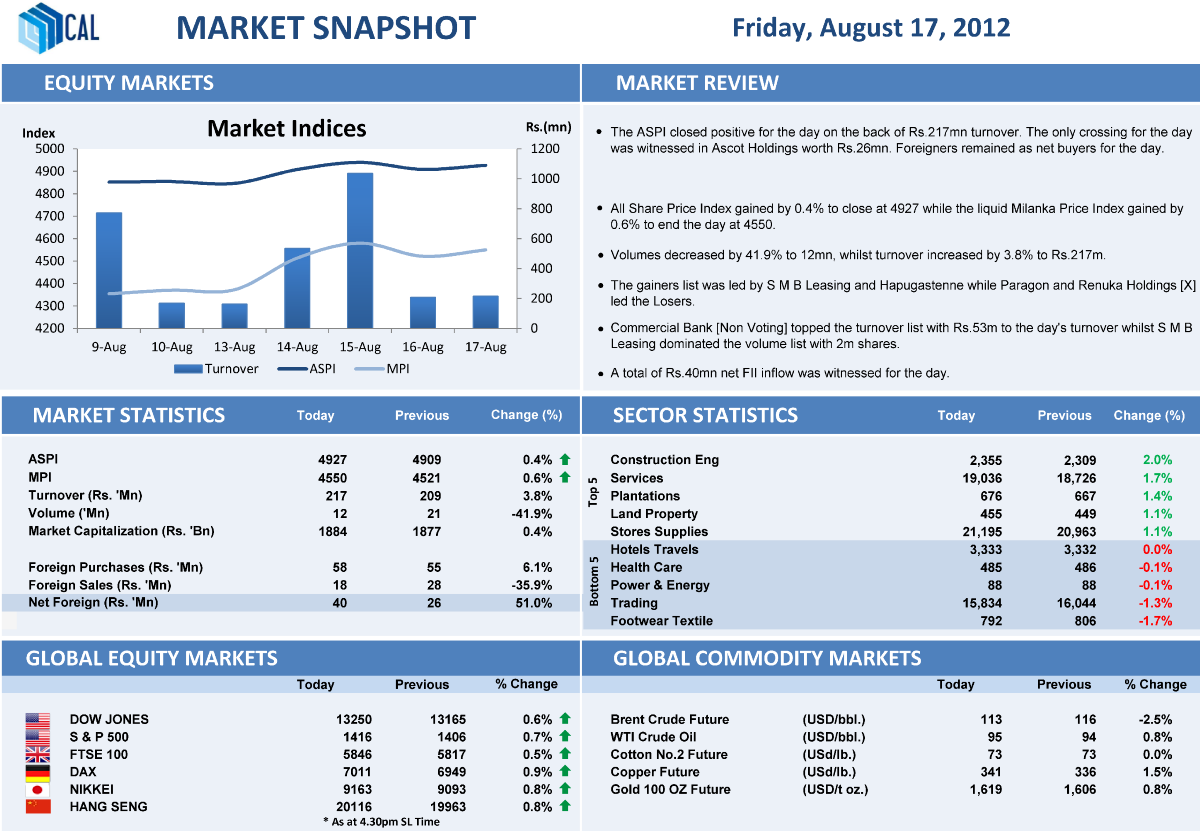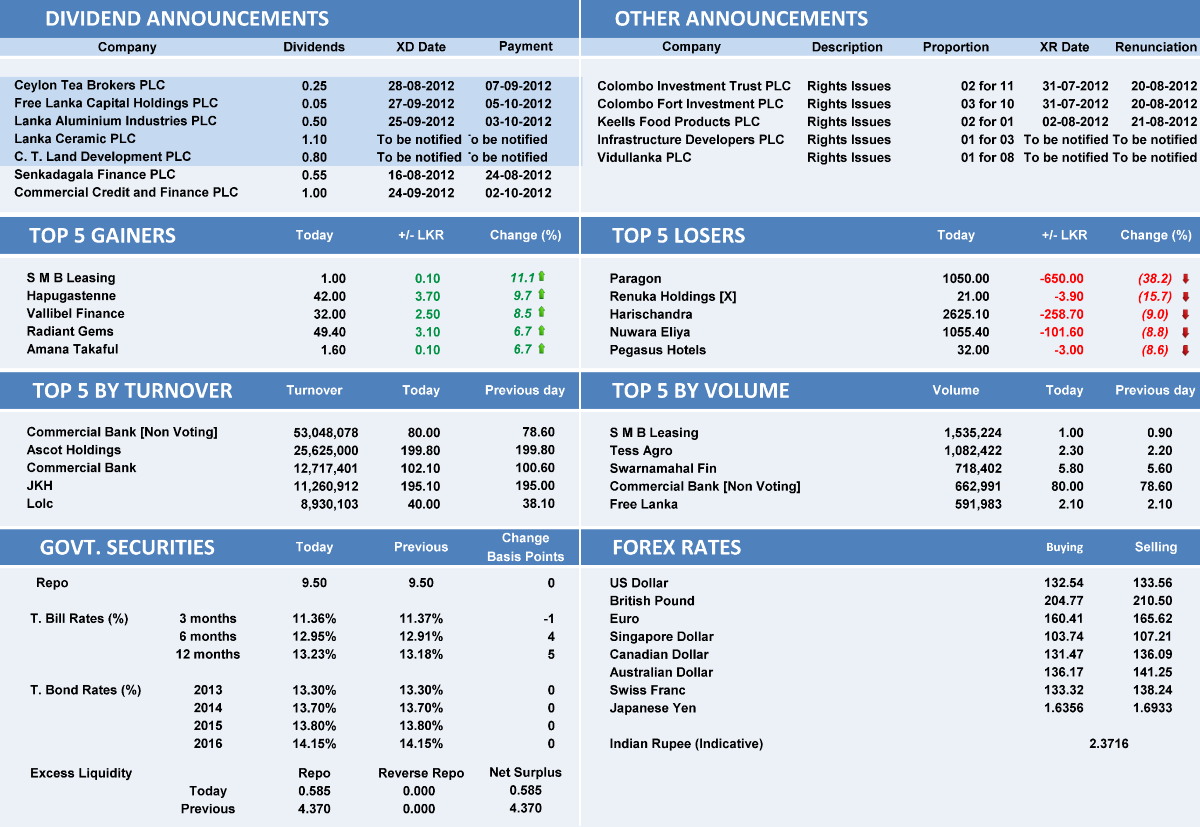■Exit of SEC Chief to spark mixed reactions with some dismayed and others relieved
■Capital market needs an overhaul and reforms at regulatory and investor community level after a soul-searching exercise say independent analysts
By Nisthar Cassim
If one were to go by his recent pronouncements of being under severe pressure by a so-called mafia trying to oust him and that he would call it quits by today, then the ‘Thank God It’s Friday’ phrase must be reverberating inside the deep soul of SEC Chairman Tilak Karunaratne.
Amidst calls for his resignation and continuity, could it be a case of Hobson’s Choice for SEC Chairman Tilak Karunaratne?
Whilst calls are being made for continuity, his pre-announced resignation from today will mark the exit of the second head of the capital market regulator in nine months, a development which has raised concerns both within and outside the market.Some however are cheerful for valid reasons too in their view.
In preparation of his exit, Karunaratne has had several rounds of meetings with the staff at the SEC Secretariat. In one encounter Chairman had said he would consider remaining if requested by President Mahinda Rajapaksa himself, prompting the staff as well as supporters of Karunaratne rushing appeals to Temple Trees.
Some have described the circumstances under which he was quitting as ‘demoralising,’ whilst UNP MP Dr. Harsha de Silva via a press conference on Wednesday implied it would be the demise of the SEC. Joining the chorus of concerned stakeholders was the Ceylon Chamber as well, which is selective in terms of issues over which it raises the red flag.
To recap what Karunaratne has said of late, “I am under immense pressure to resign for the reason those concerned know best,” was the remark the SEC Chief made to Reuters on Monday. “This might be mainly due to false information fed by a mafia of high net worth investors and their crony stockbrokers who have been involved in pump-and-dump deals,” he added.
The next day he again told Reuters: “It’s better to call it a day rather than fight with these people,” in reference to investors who had made accusations against him.
Though the post of SEC Chairman is a non-executive one, Karunaratne was widely portrayed as someone who has been pushing for investigations into stock market malpractices, including so-called pump-and-dump deals. He was said to have re-opened files which were previously closed on alleged instructions from outside. Karunaratne was seen as a crusader against unscrupulous investors and brokers who were described as the mafia. In short he wanted an independent hand.
At the same time, there are many within the capital market stakeholder community who will welcome Karunaratne’s exit. Their relief will be on the grounds that he was being discriminative and vindictive, apart from leading the SEC to a degree of overregulation as opposed to pragmatic regulation. Given his political background, some viewed him as anti-capitalist or believed that his agenda-driven officials at the SEC misled him.
The discriminative charge had some credence since only a set of investors were hunted for suspect irregularities. In fact UNP MP de Silva admitted that the SEC hadn’t investigated the slew of questionable deals on the stock market by the EPF.
SEC’s vindictiveness was also reflected by the tone of its standard letters seeking for preliminary information. The SEC had portrayed a case where a mafia was demanding an investigations-free regulator. But as publicly stated at the President’s Forum, brokers and investors had only complained about overregulation and about a regime that drives fear among market participants who remain innocent until proved of any offenses. To catch a few crooks, the SEC was seen to be destroying the entire market and investor moral.
The other allegation is that Karunaratne and the SEC weren’t discreet and professional in terms of supervision and regulation as done by the Central Bank. It was also seen to be regulating via the media as opposed to maintaining a hands-off approach as expected from capital market regulators.
It was maintained that regulators speak less but act more. Though Karunaratne cannot deny the former, his grouse could be that outside pressure prevented him from doing the latter.
The message from the President and Finance Minister was also not about “artificially propping up” but the revival of the stock market via short, medium and long term measures. Even before any such measures could be implemented with the SEC’s concerns considered, Karunaratne was seen as rushing to conclusions as well as over-stepping his mandate.
In that context, some of his recent actions were viewed by some as implicating and compromising his appointer – the Minister of Finance who is also the President, and the Treasury Secretary, his immediate reporting boss.
This prompted some to allege that Karunaratne was causing a major embarrassment to the Government, though this view was checkmated by UNP MP de Silva on Wednesday when he alleged that the SEC fiasco reflected the failure of the Government.
As per some observers, Karunaratne’s frustration may have reached a climax after the way he was allegedly treated at the capital market stakeholders’ forum convened by President Mahinda Rajapaksa. One participant sympathetic towards Karunaratne opined he should have quit immediately thereafter, given the humiliation.
Whilst for Karunaratne his tenure at SEC was less than a year, for those who have closely tracked the developments at the capital market regulator for many years, the modus operandi of the latest Head wasn’t without questions.
As revealed by the Auditor General’s opinion on SEC’s accounts, even the capital market regulator hadn’t strictly followed financial regulations in certain aspects. This reinforces the need for the SEC to also look within and take corrective action.
The stock market began sliding from mid-2011 from a level which the very regulator described as unrealistic. If a correction was warranted, then the question is whether it has reached the desired level or not.
The record net foreign buying suggests the market has not only long corrected, but despite bad mouthing about manipulations and under-regulations, foreigners are seeing value in companies that have great upside in earnings in post-war Sri Lanka. In that context, independent analysts opined that SEC may have lost sight of this in its zeal to catch the few crooks and eventually the market remains in the doldrums.
For those who espouse the theory that economic fundamentals are key to a market revival, then the Colombo Bourse’s historical performance is unlikely to be of any use as there isn’t a credible co-relation between GDP growth and ASI’s movement.
There is consensus that a change at the top may not be the answer, but a total overhaul and reform both at regulatory side and best practices from investor community at large. An analyst said the country had suffered enough due to loss of lives and opportunity due to extremism for 30 years, hence extremes must be avoided if post-war Sri Lanka were to ensure equitable value creation via a vibrant and credible capital market.
source - www.ft.lk

